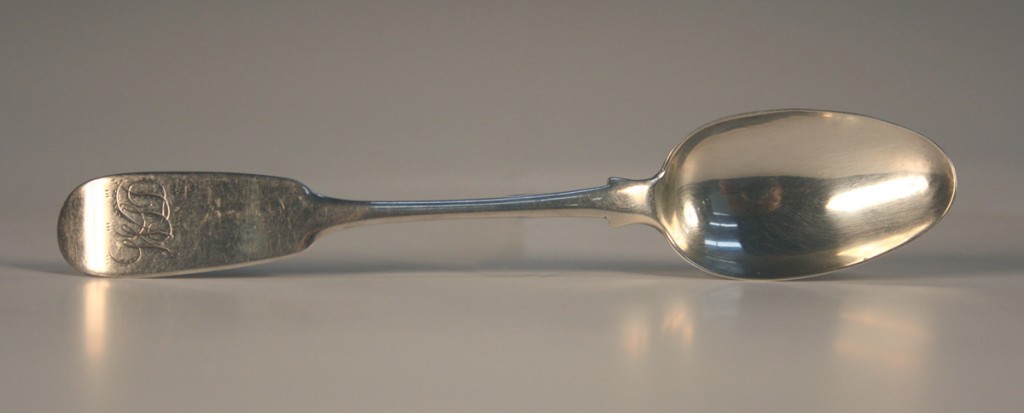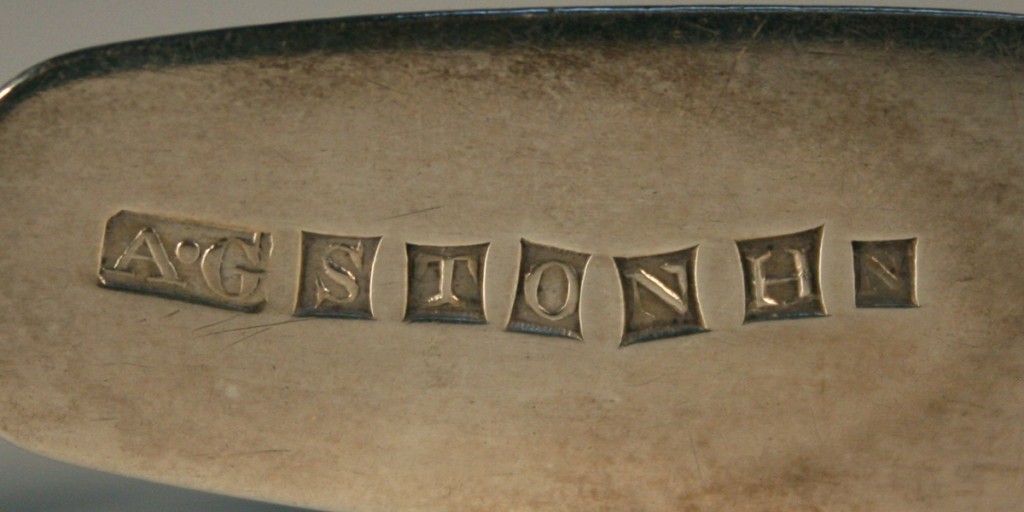
There has been plenty of media attention recently regarding the price of precious metals as a commodity. Most newspapers and magazines will have an advert for a company offering to pay ‘top prices’ for gold and silver. Some companies have even resorted to pay for advertising on television to attract large quantities of precious metals. The government is also in the process of passing new laws to try and combat the rise in metal thefts. With prices for ‘scrap’ metal so high, many people overlook the antique object to literally cash-in on its more obvious intrinsic value in ounces. Toovey’s January auction of Antiques, Fine Art & Collectors’ Items included a privately entered single-owner collection of early English and Scottish provincial spoons and other silverware (Lots 350 to 394). The oldest example was a seal top spoon from 1580, made by Nicholas Bartholomew during the reign of Queen Elizabeth I. One would hope, having survived this long, it was never in danger of ending up in the melting pot. Early pieces of silver have always been prized amongst collectors, this example was no exception, selling for £2000.
The rarest spoon in the collection however, was arguably a little less obvious. Lot 380 was a rare Scottish provincial Fiddle pattern teaspoon (illustrated above). Like many items of cutlery it was engraved with a previous owner’s initials ‘WSD’. As a provincial Scottish item it did not display the usual hallmarks one would associate with silver from England of the same date. English hallmarks generally would comprise of five marks: sterling, town of assay, date letter, maker’s mark and sovereign’s head. Instead it was marked ‘A.G, S, T, O, N, H, N’ (illustrated below). The ‘A.G.’ is the maker’s mark for Alexander Glenny, the remaining combination of letters indicate that the spoon was made at Stonehaven where Glenny worked circa 1840. This is of particular importance as it is one of the rarest of all Scottish provincial town marks. As Toovey’s catalogue stated, items of Stonehaven silver that can be confidently ascribed are extremely rare with only a handful known to survive. Only items with this combination of marks should be considered of definite Stonehaven manufacture. Because of this collectable mark and its rarity, this 13.5cm long teaspoon attracted the interest of commission and telephone bidders, but finally sold in the room against this competition for £2900. Being a teaspoon it weighed very little, just 13 grams – if it had been condemned to the melting pot on its weight alone, one would have received under £10 for it at the current prices paid for silver. Thus, reinforcing the importance of checking the collectable and rarity value of silver and gold with our team of specialist valuers before ‘cashing-in’ on an object’s scrap value. If you would like to organise a free pre-sale valuation of your silver, please do not hesitate to contact Toovey’s for more information.
